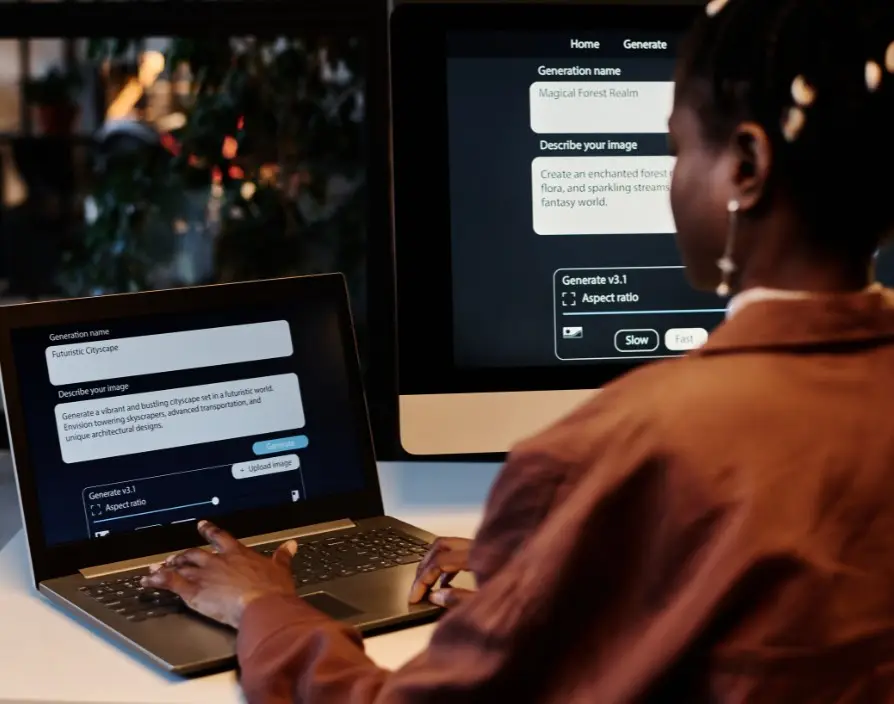The next big tech wave will be the revolution in human productivity. AI gives us a unique opportunity to organise our lives with minimum effort for maximum value, defining and measuring our hourly output and creating more time capacity.
For small and medium-sized businesses, this is a game-changer. Small businesses are typically under-resourced and under-marketed, they lack lateral vision because the business is normally comprised of one-hard working person with a small team around them.
I have been using AI tools in a range of businesses for nearly 20 years, including my eVTOL business, Autonomous Flight, developing a prototype for a “flying taxi”, and my independent film platform, Flix Premiere. But for my latest venture I am focusing on how AI can deliver unprecedented productivity gains in our everyday lives – and, for entrepreneurs, the implications are ground-breaking.
By constantly learning about the user, AI will take on autonomous functionality, undertaking multi-step tasks. Think of an AI agent as a partner, not an executive assistant. You put trust in transactions that AI will undertake on your behalf. AI task automation does not need your permission. It can see what you can’t see, it can see around corners.
I have developed a new app warpSpeed that integrates with smartphone apps to analyse data, learn user habits, and autonomously execute complex tasks, enhancing productivity tenfold through intelligent automation and personalised assistance. It leverages the power of more than 100 integrated AI services and is powered by its own proprietary Vertical Large Language Model, as well as accessing Large Industry Models.
Ask AI how to improve your productivity
An AI agent will do 80% of the heavy lifting, which will be especially valuable for entrepreneurs running smaller businesses but will help anyone organise their life more efficiently. A multi-dimensional calendar will autonomously plan schedules; a tagging and organisation tool will turn rough notes into action-driven lists that can undertake tasks; and a task implementation tool will autonomously make daily routines more productive.
To give a simple example, if you work from an office from Tuesdays to Thursdays you might be woken up by your alarm half an hour early on a Wednesday morning. While you have been sleeping, your AI agent has seen there is a serious delay on your normal route because of a pile-up; it has rescheduled your alarm call to ensure you have extra time to get to work, but it also knows that you use Trainline to book rail tickets so it has provided you with the time and price of the train that you can take instead of driving and lined up a booking option.
As a hard-pressed entrepreneur running a scale-up business, you can also ask how AI assistance could improve your productivity, ways of working and daily routine. The AI agent will automatically implement multi-step tasks on your behalf because it understands the wider context of your daily life and will apply better reasoning and better datasets to answer specific questions than you ever could. It will examine the data to come up with the best outcome.
Take the complexity out of your working life
People are aware of AI and have seen the potential of chatbots and large language models. However, despite its various use cases in different industries, AI’s full potential has not yet been leveraged in the everyday. Part of this is due to the technical challenge of how to use AI to its full potential. But by taking all the complexity out of the equation we can make a giant leap in productivity available for everyone.
In a recent Ted Talk, I described Humanity 1.0 as the age of information abundance; it was driven by automation in the 1990s and the organisation of information through the development of the worldwide web, search and ecommerce in the 2000s. Humanity 2.0 will be the age of information meaning. Machines will understand human context and outpace human thought – and life will speed up beyond our wildest imaginings.
Once an AI agent can do tasks without our knowledge and with 100% reliability, we will be in an era where speed is no longer a meaningful measurement. The productivity revolution will be complete. The challenge will be how we partner with AI; how we police its applications; and how we live with its consequences.
As entrepreneurs, we should be looking to board the train while it’s still at the station – not chasing it down the track.




